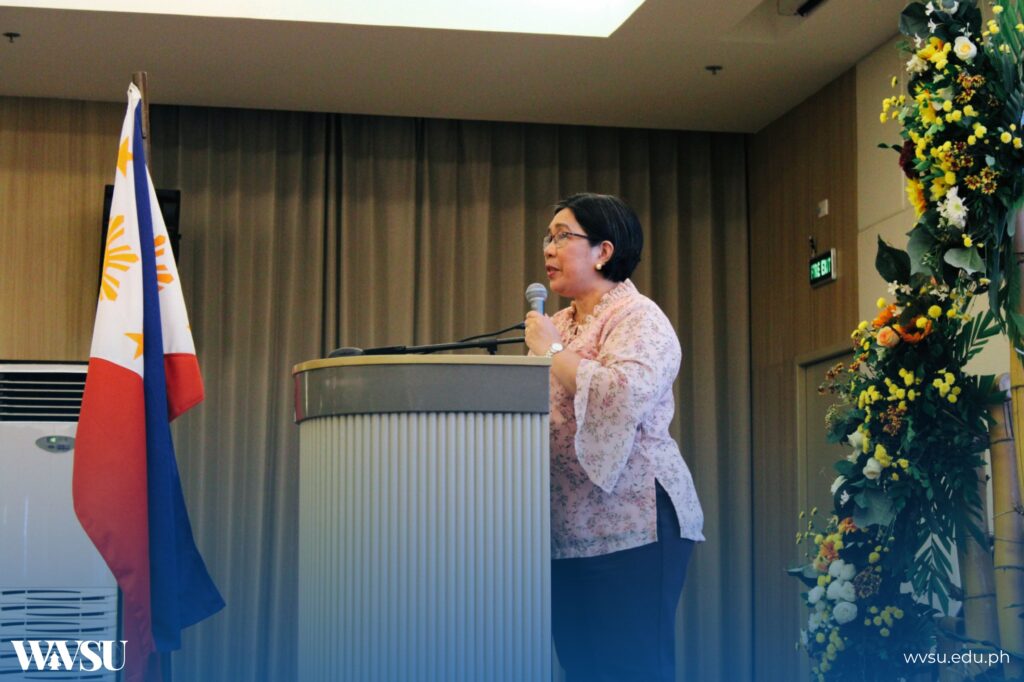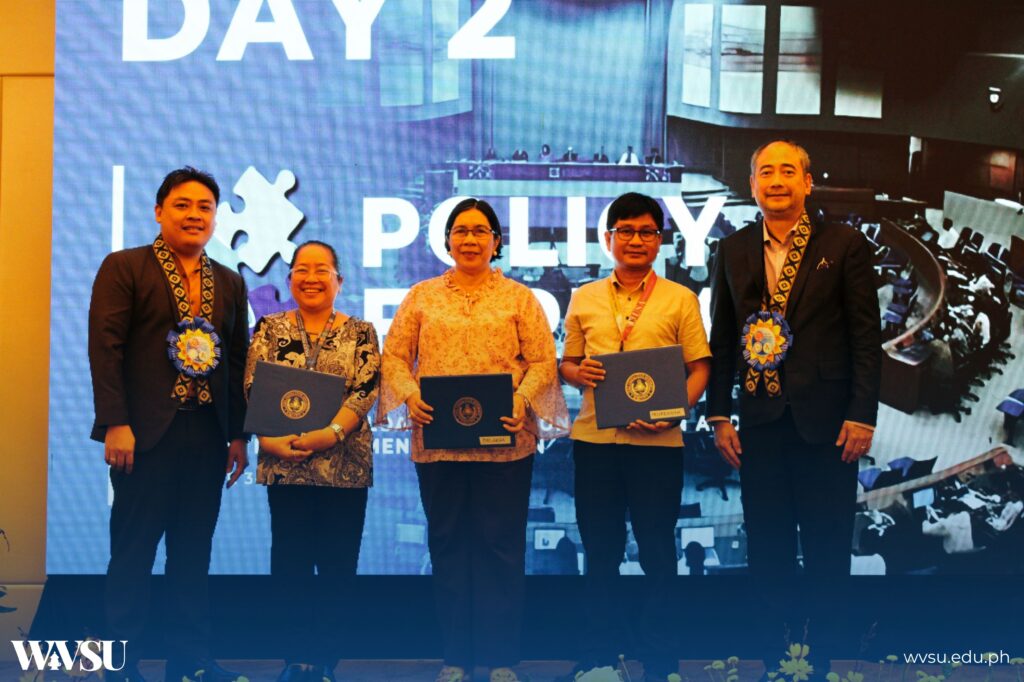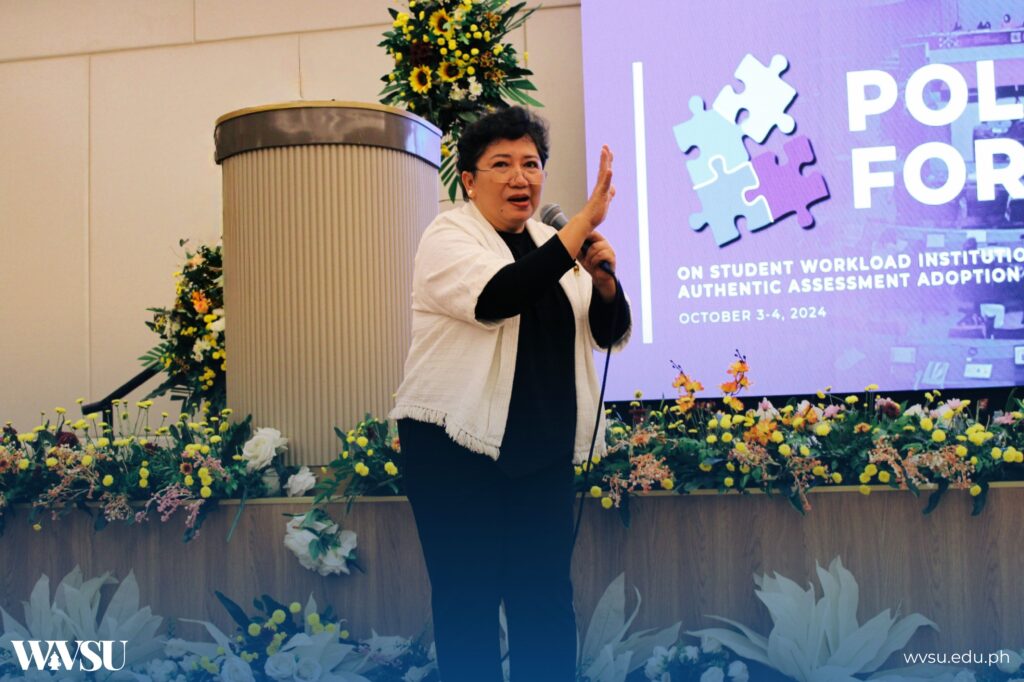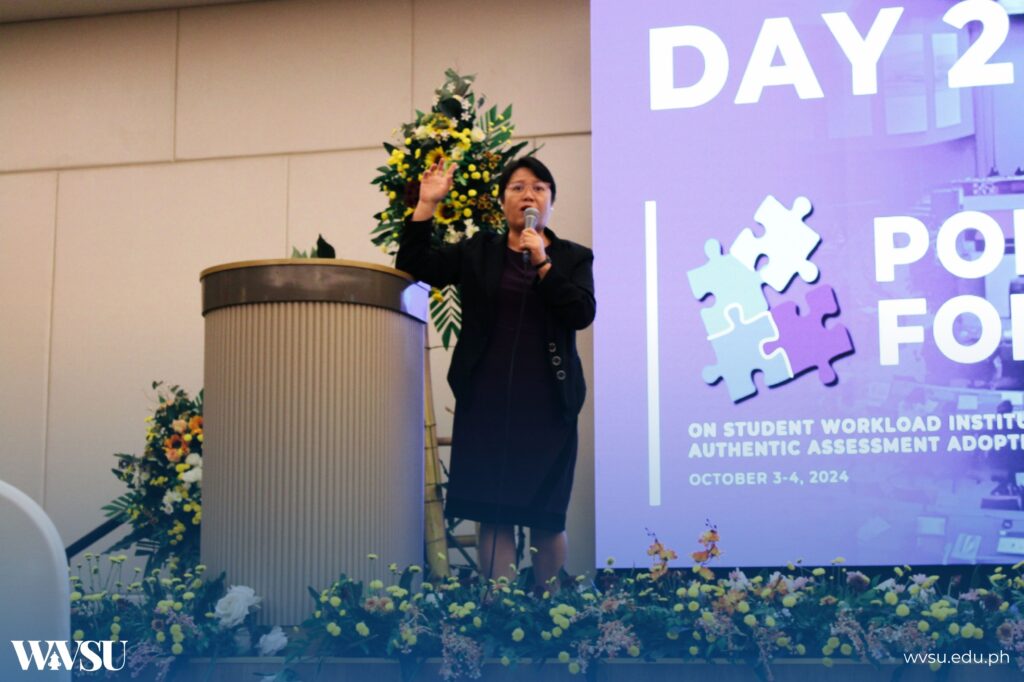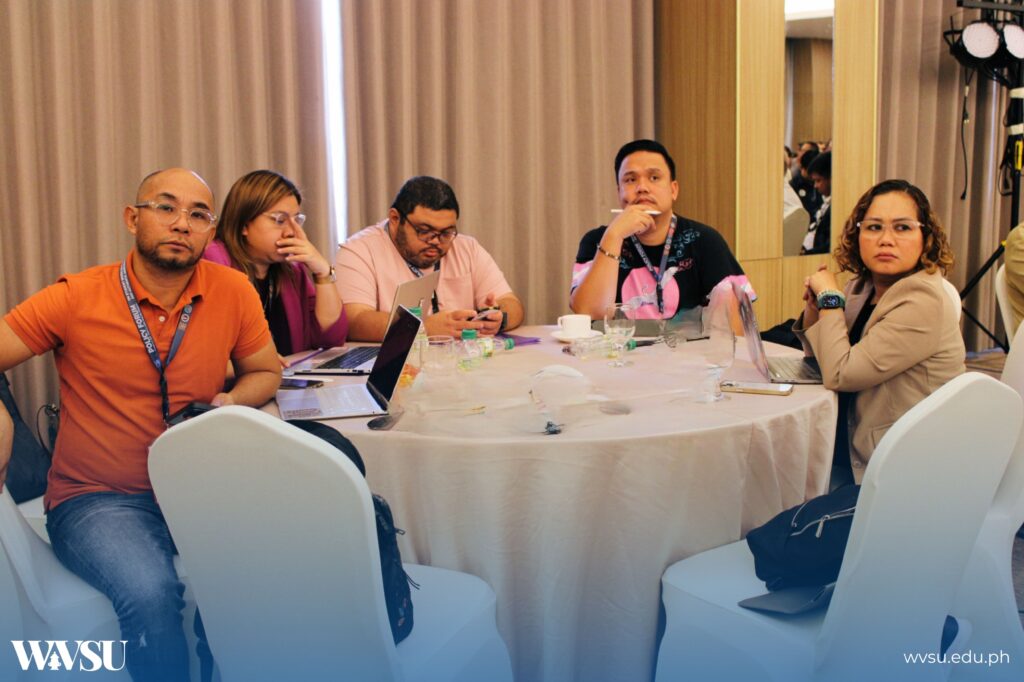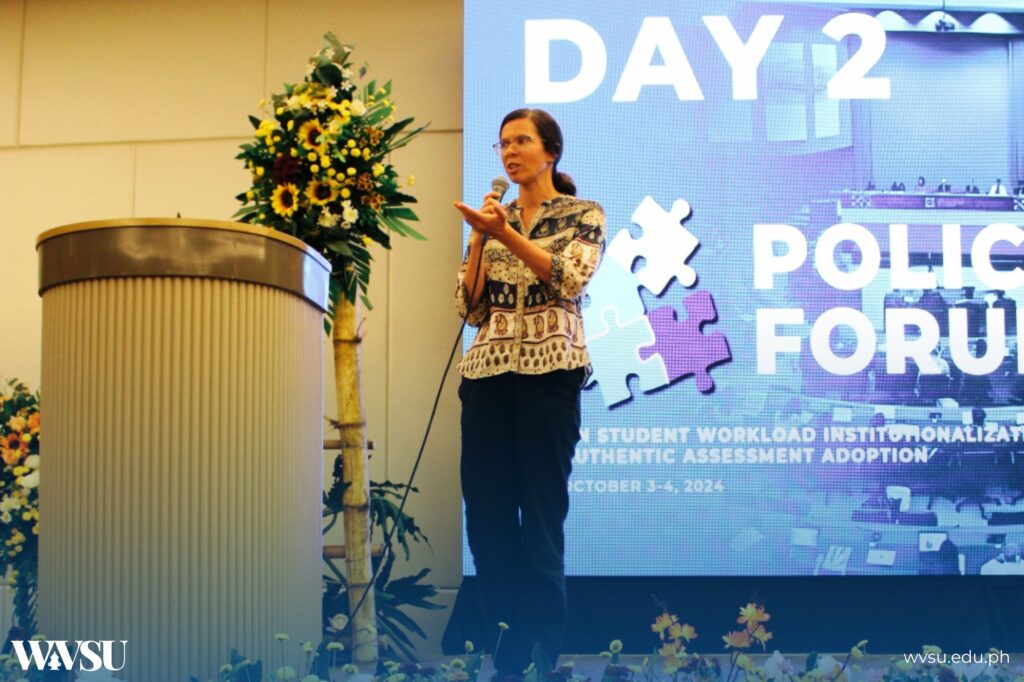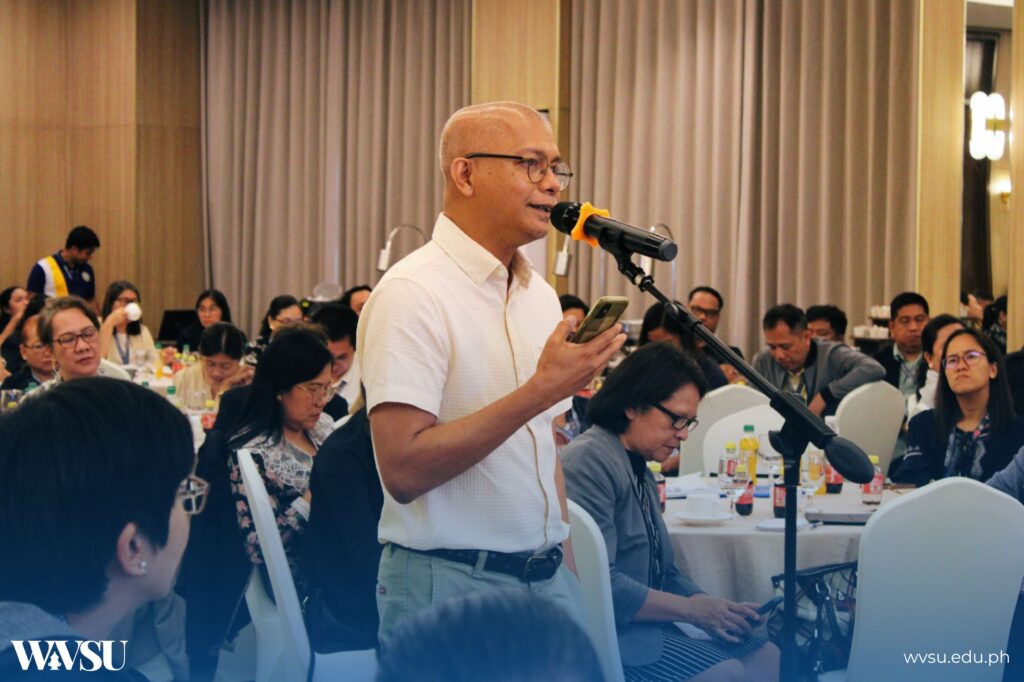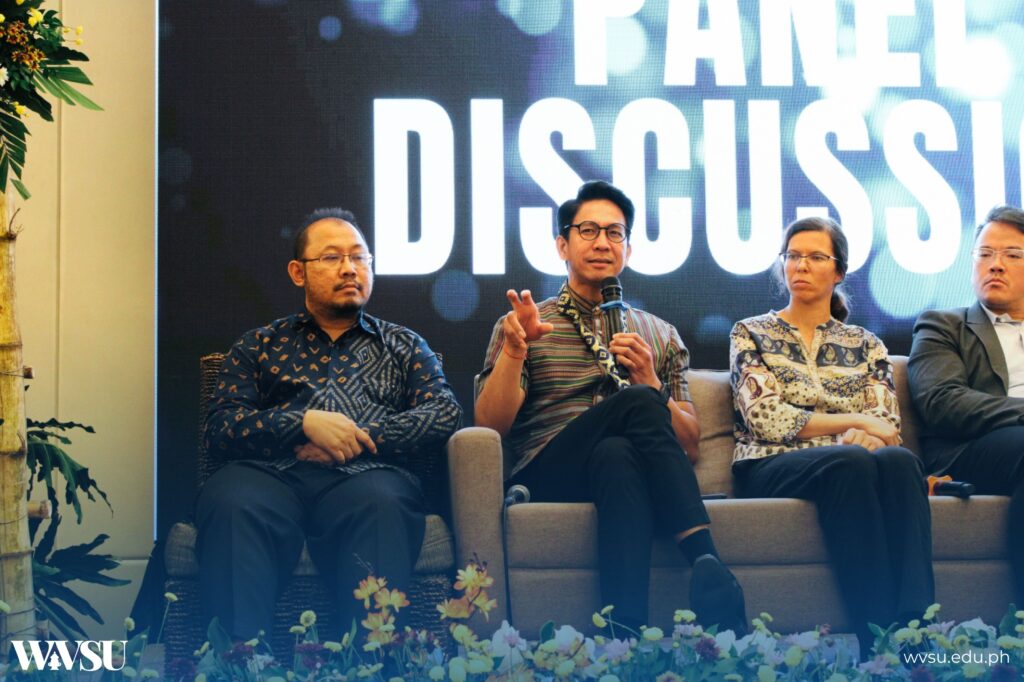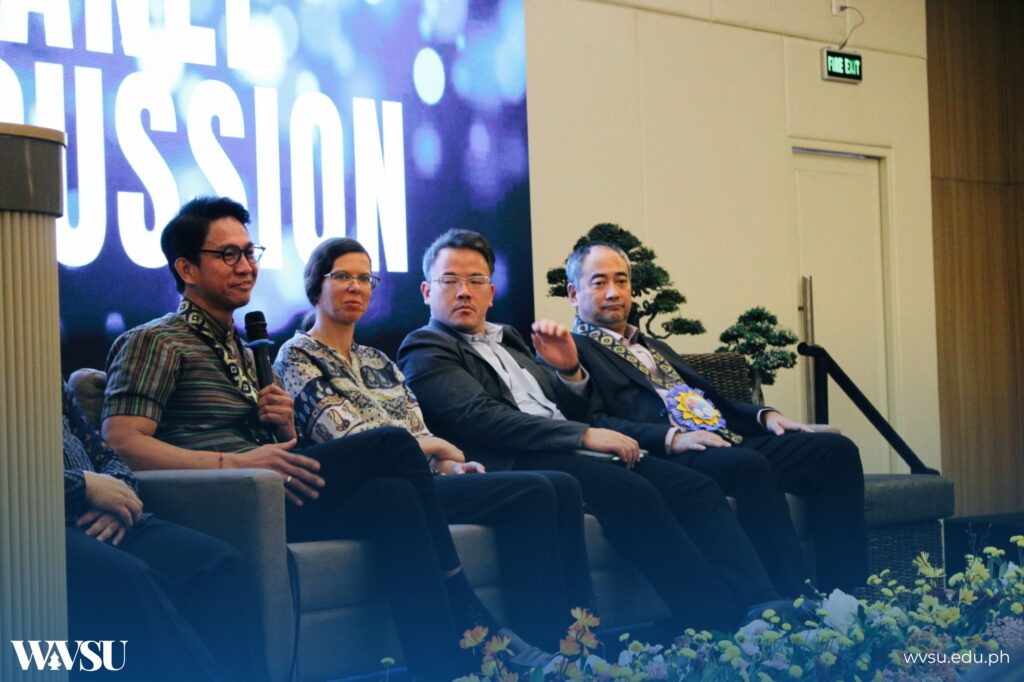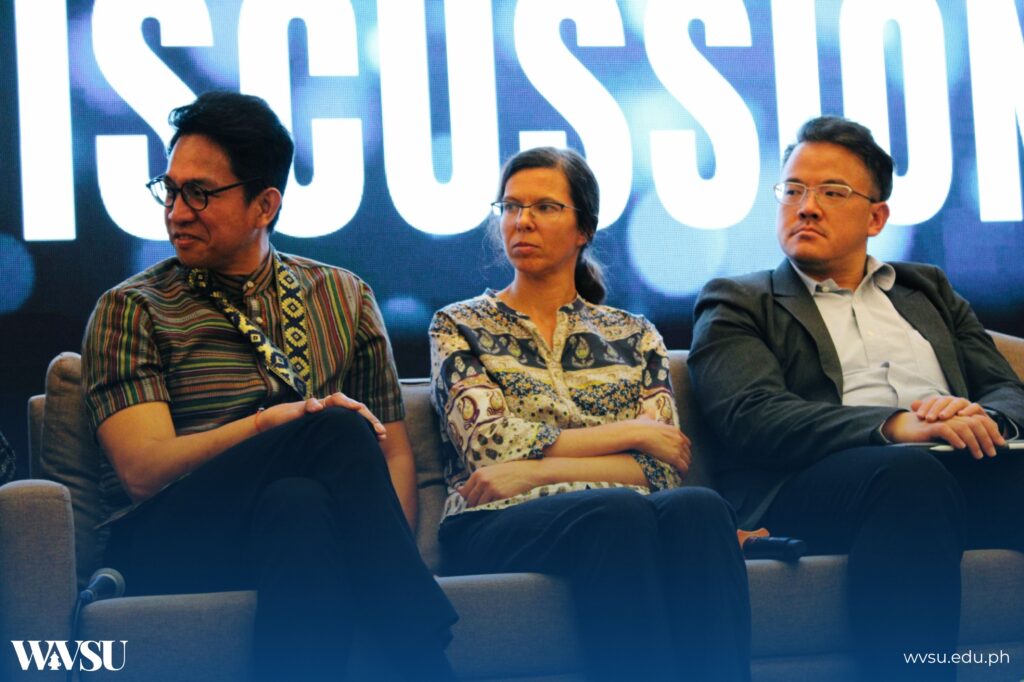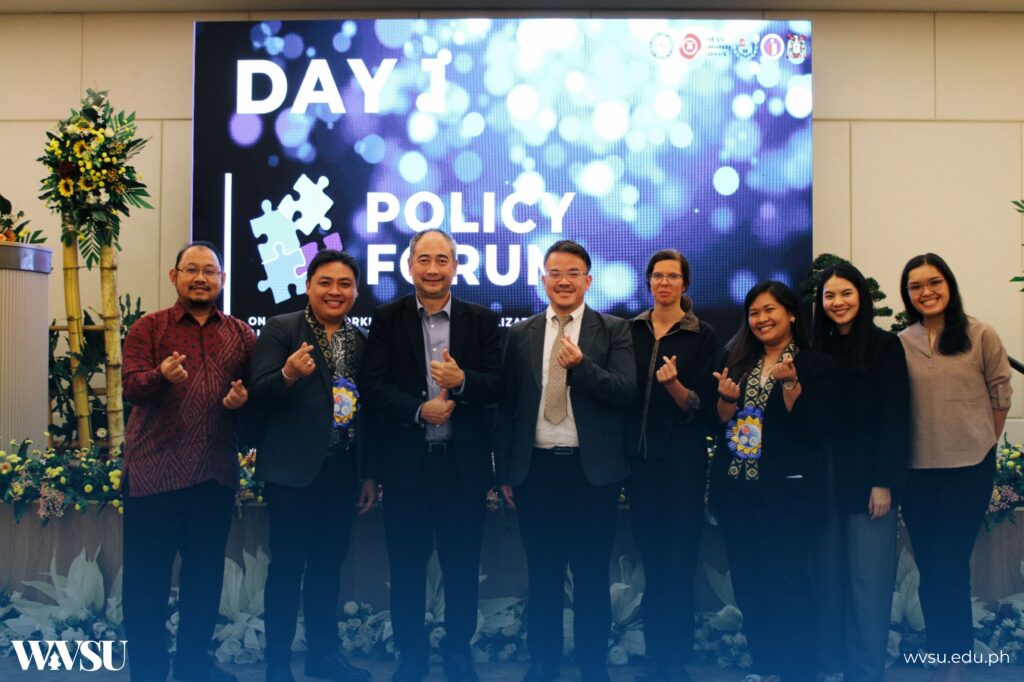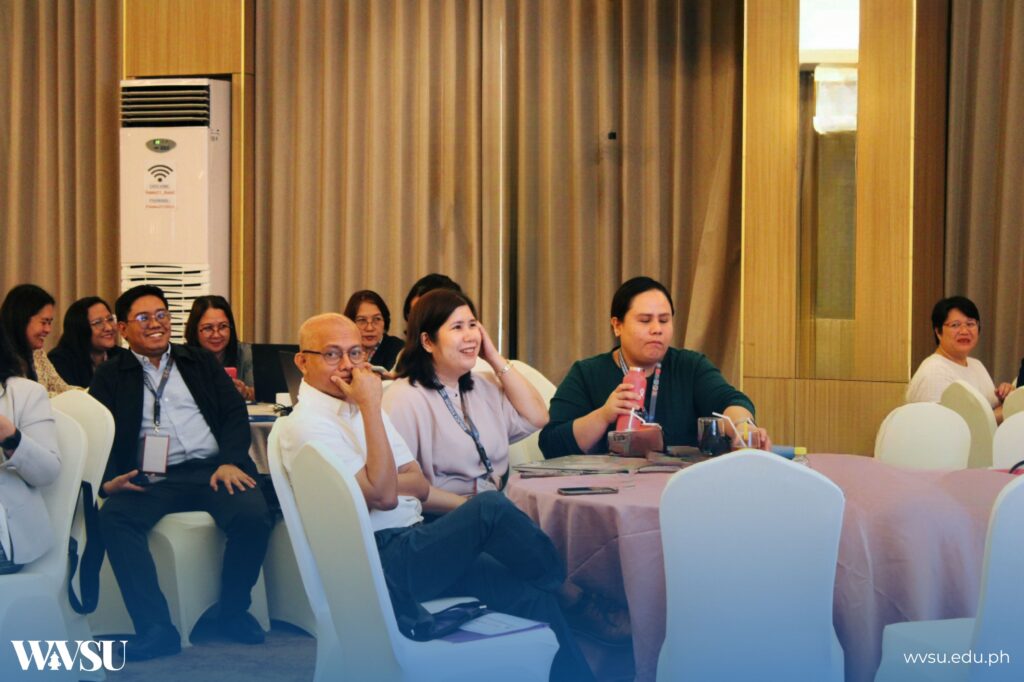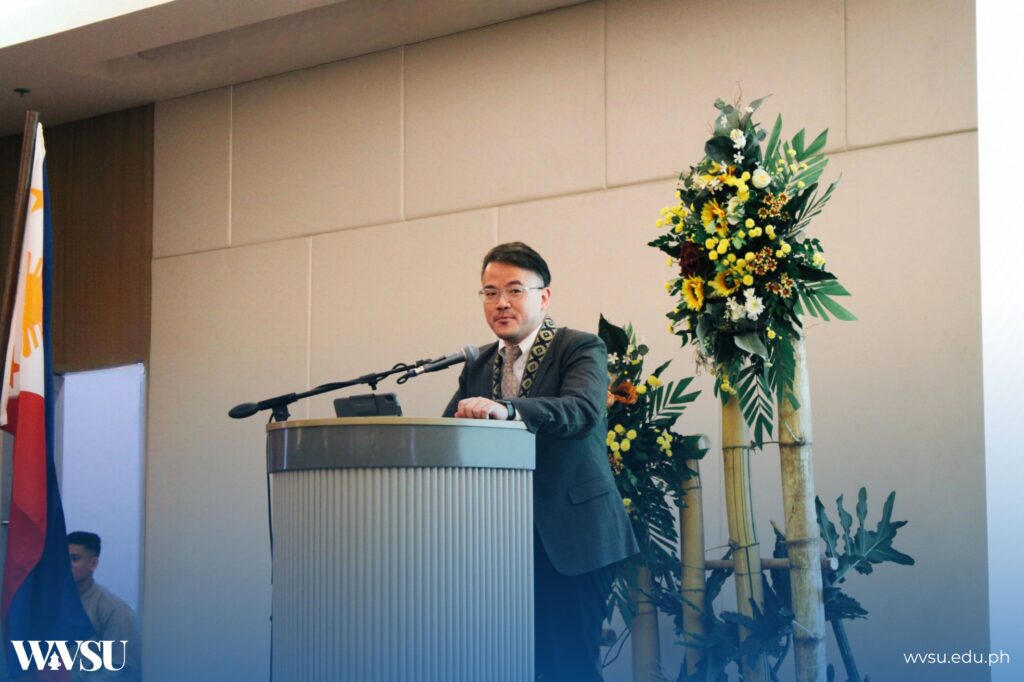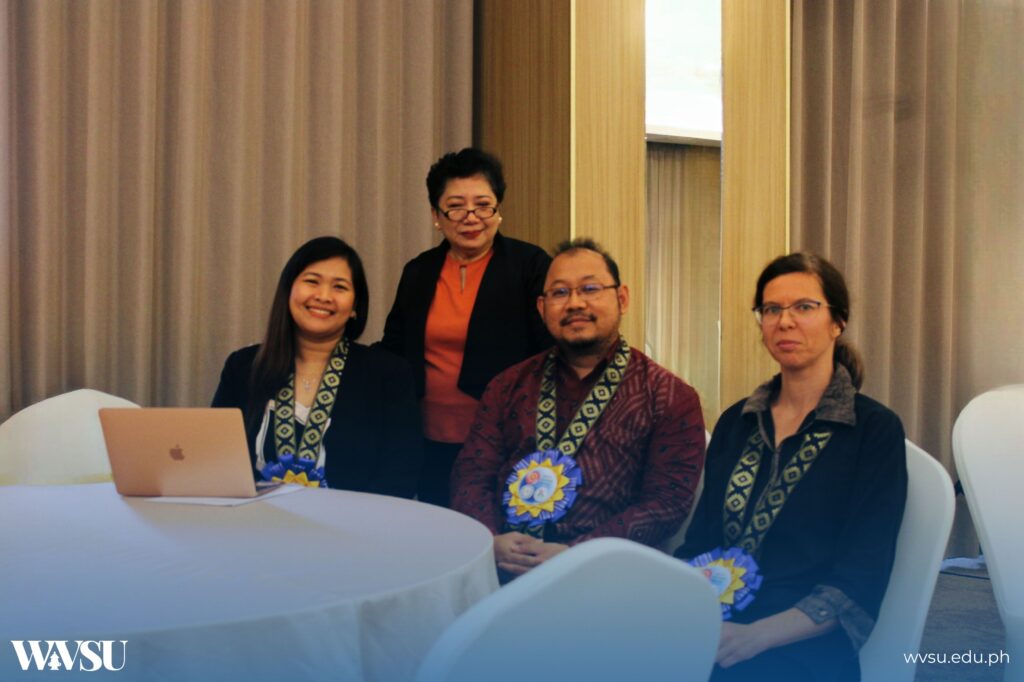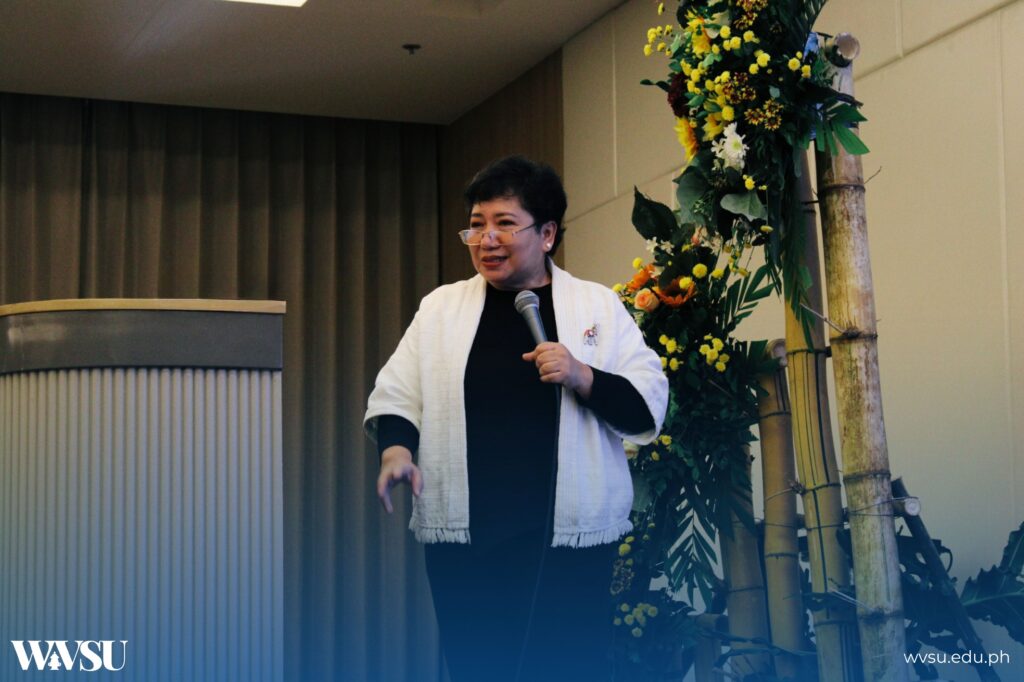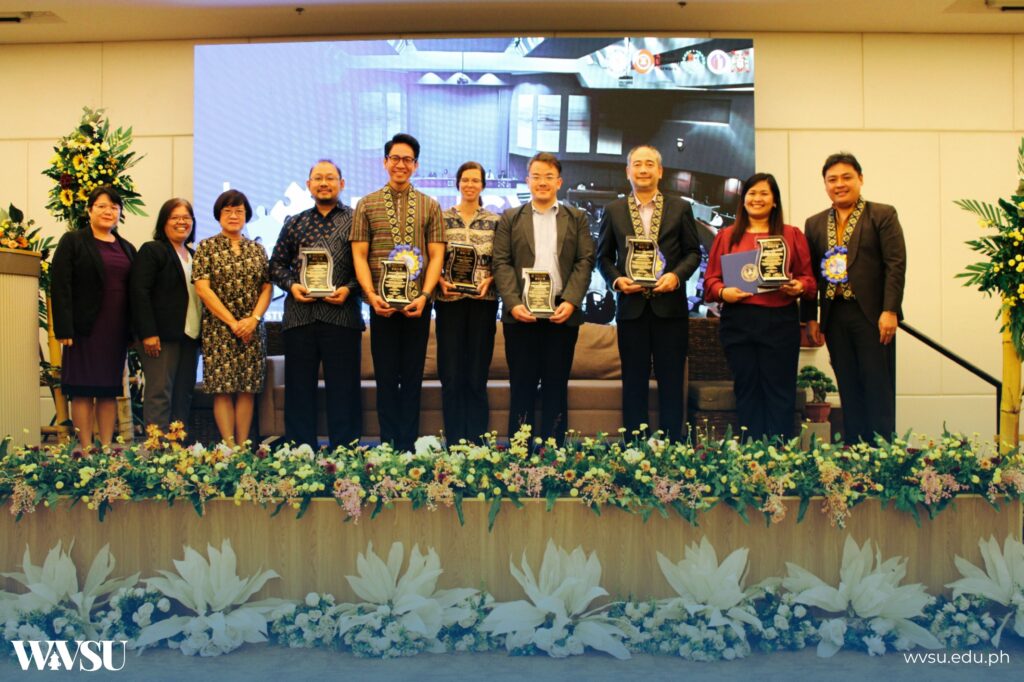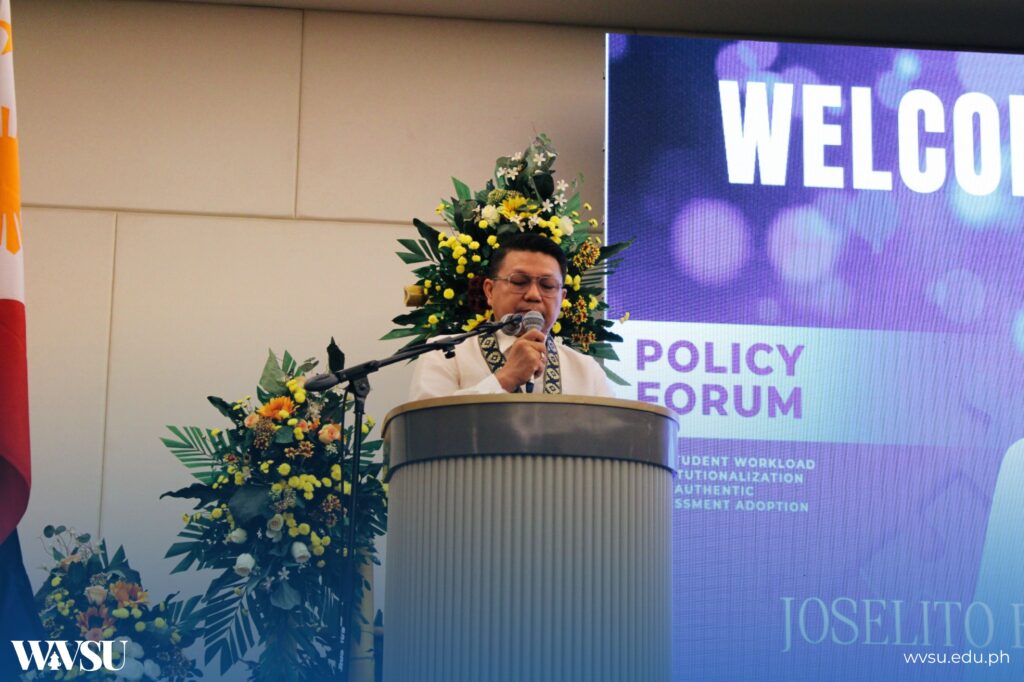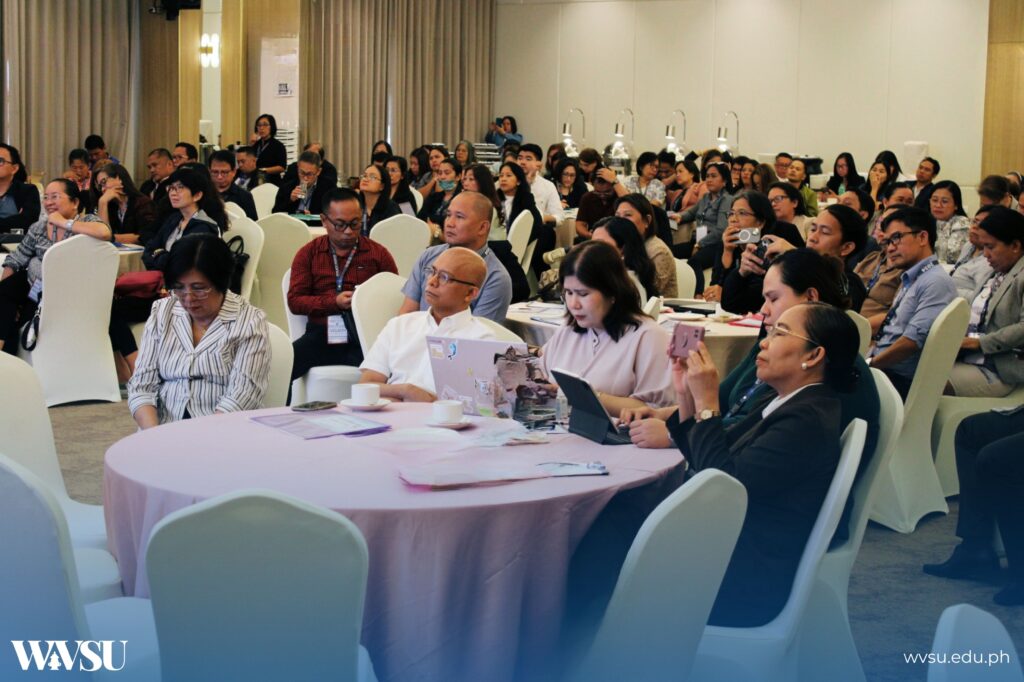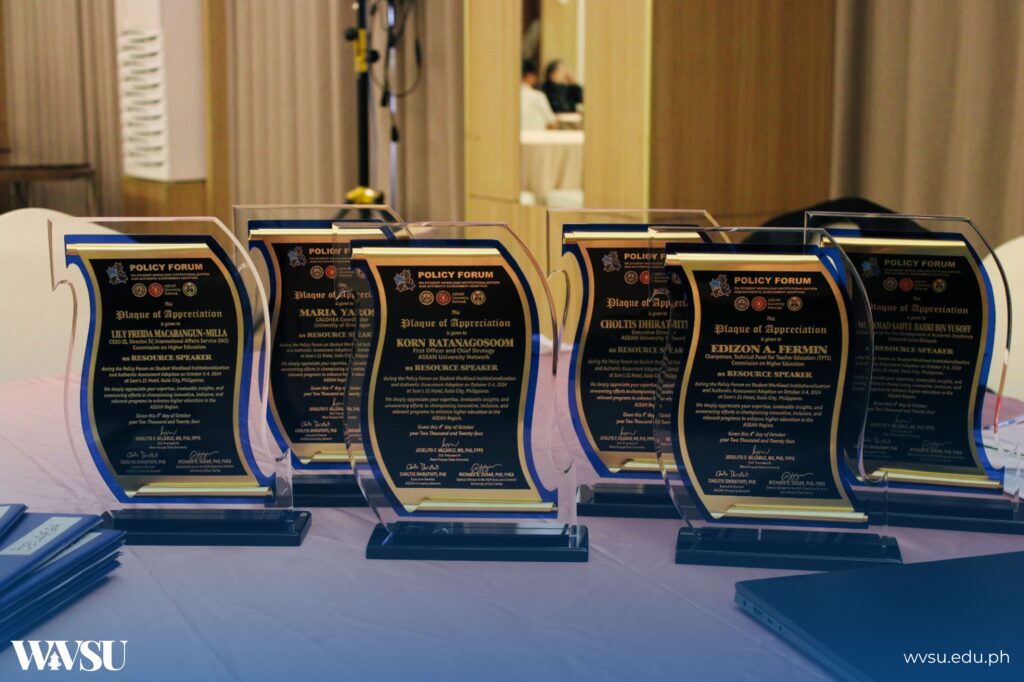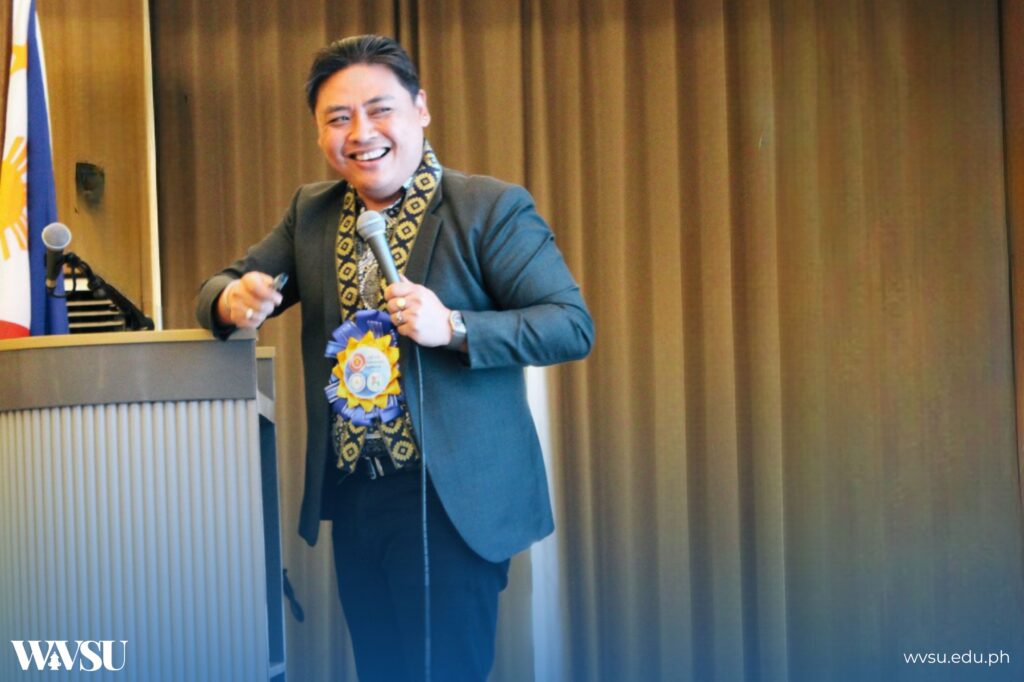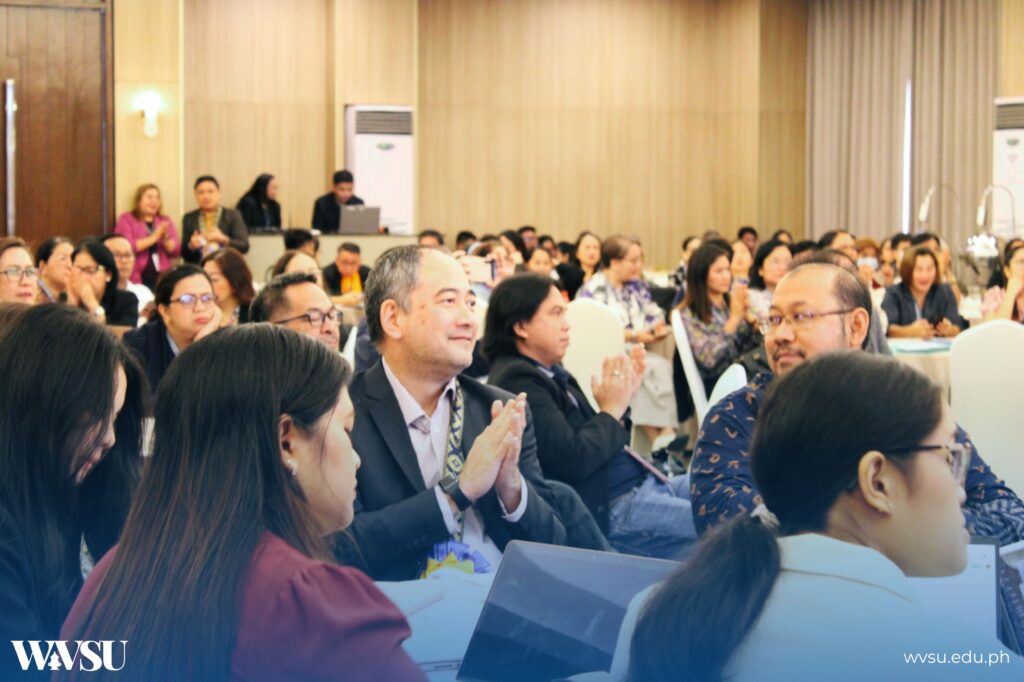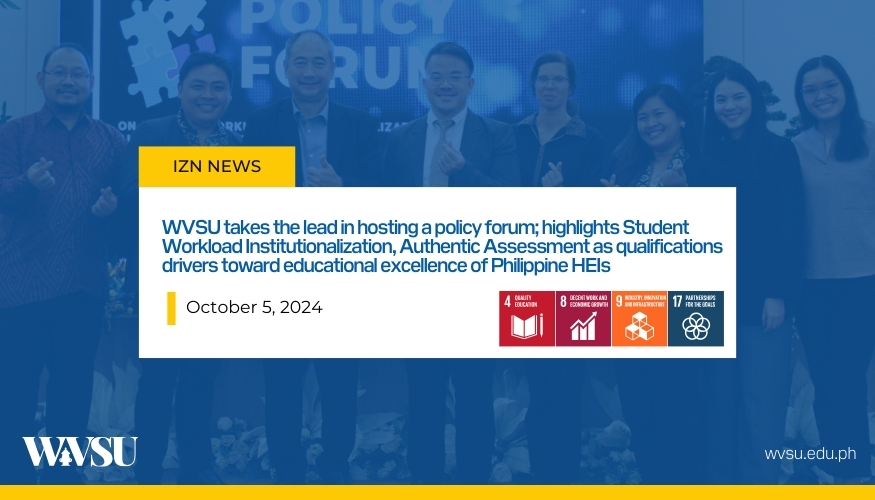In an effort to promote global education excellence, West Visayas State University (WVSU) in collaboration with the ASEAN University Network (AUN), University of San Carlos (USC), University of San Agustin (USA), and Ateneo de Manila University (ADMU) organized the Policy Forum on the Institutionalization and Standardization of Student Workload and Adoption of Authentic Assessment on October 3-4, 2024 at Sam’s 21 Hotel, Iloilo City.
This forum was held with the aim of introducing higher education institutions in the Philippines to the CALOHEA project’s recognition mechanisms and further encouraging them to make use of the mechanisms such as student workload and authentic assessment to compare and measure achievement of program learning outcomes in the South-East Asian region.
This gathering stems from the Erasmus-funded Measuring and Comparing Achievements of Learning Outcomes in Higher Education in Asia (CALOHEA) Project, which pinpoints three specific recognition mechanisms (RMs) crucial for enhancing the internationalization of higher education institutions in Southeast Asia.
Dr. Joselito F. Villaruz, President, WVSU, commenced the forum by extending a warm welcome to all of the speakers, CALOHEA experts and champions, and attendees from 56 universities in the Philippines. He emphasized the importance of internationalization (IZN) of HEIs in the Philippines and the dedication to consistently raising the quality of curricula through CALOHEA recognition mechanisms.
Dr. Villaruz also emphasized the principal findings of the CALOHEA project that may contribute to efforts in improving instruction and assessment, mobility, and internationalization strategies. As a result of the university’s involvement in the project, WVSU and the other participating universities had the chance to learn about these mechanisms and their implications to higher education in Southeast Asia. The policy forum was also an avenue to exchange thoughts related to these matters.
Dr. Choltis Dhirathiti, the AUN Executive Director, underpinned the significance of the use of authentic assessment and student workload as tools for interregional cooperation, internationalization, and the growth of higher education in the region. The AUN also recognizes the role and support of the CALOHEA project to AUN efforts on student mobility.
The forum began with an overview of the CALOHEA project, which provides the framework for the discussion. Dr. Maria Yarosh, a European expert and the coordinator of the project from the University of Groningen gave the audience an overview of the project’s history. She stressed that the European Universities are already using the Tuning methodology, so the comparable methodology would help higher education in the Philippines.
Finally, Dr. Yarosh gave a summary of the three Key Recognition Mechanisms in CALOHEA and discussed how they may be used to higher education in the Philippines and the ASEAN region. Discussions on Malaysian CALOHEA experience was shared by Dr. Muhamad Saiful Bahri Yusoff and on research and activities by Korn Ratanagosoom.
Following the plenary session, Dr. Richard Jugar, special advisor to the AUN Executive Director and the SAG Coordinator of CALOHEA-Teacher Education, engaged the forum participants with the concepts of Syllabus-based Estimation and Course-Tiering through exercises and discussions. During the Authentic Assessment (Re) Development Plan exercise, participants had to use the knowledge they learned about authentic assessment through guided activities.
On the second day of the forum, exemplar experiences on the implementation of the project from WVSU by Dr. Alona Belarga, USC by Dr. Mariter Malonjao, and the USA by Dr. James Pedregosa were shared. These discussions highlighted the use of CALOHEA Key Recognition Mechanisms in the context of addressing, prioritizing, and assessing student learning outcomes in higher education in the Philippines. The presenters detailed how such experiences greatly benefited their institutions.
Additionally, Dr. Ma. Asuncion Christine V. Dequilla, Vice President for Academic Affairs, WVSU, directed the discussion towards the adoption of student workload standardization and authentic assessment from the top management and administrator perspective. Her presentation addressed the implications of the initiative to the various facets of higher education, including instruction, extension, research, production, and internationalization.
Later in the afternoon, an insightful panel discussion took place with panelists joined by CALOHEA EU coordinator, AUN delegates, and Dr. Ed Fermin, the Chair of the CHED Technical Panel for Teacher Education. They all offered their insights and perspectives on essential topics and concerns raised by the HEI participants. This policy forum was also joined by Dr. Hilda Montaño, Dr. Venus Papilota-Diaz and Dr. Lynette Alcala as facilitators and officers of the day, with Dr. Anne Cortez at the Secretariat.
As the CALOHEA initiative and its participating institutions continue to make impact, introduce and implement the key recognition mechanisms across the ASEAN region, WVSU will continue to support these collaborative endeavors to internationalize and elevate the quality of education in the region’s higher education sector.
| Written by Gladwyn Gustilo
